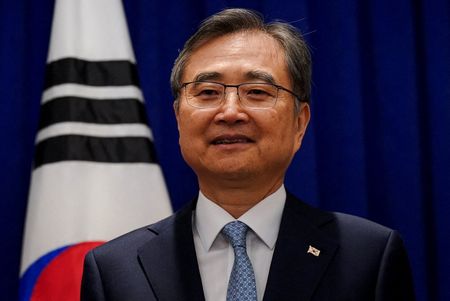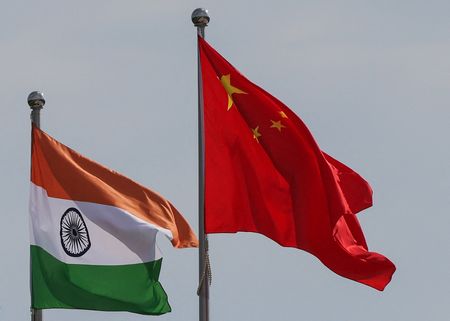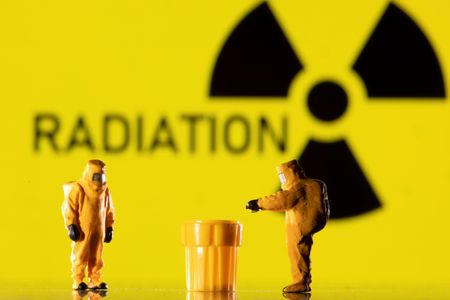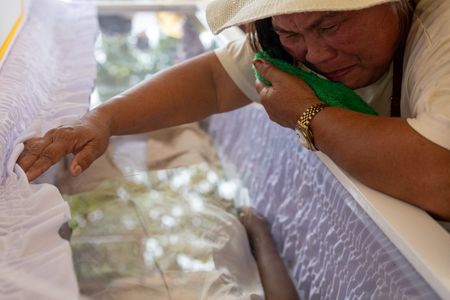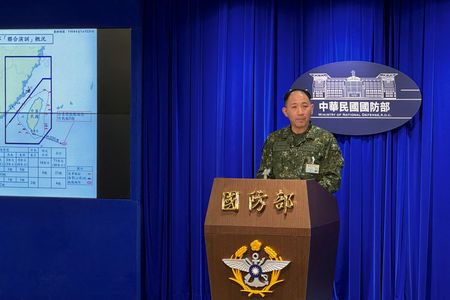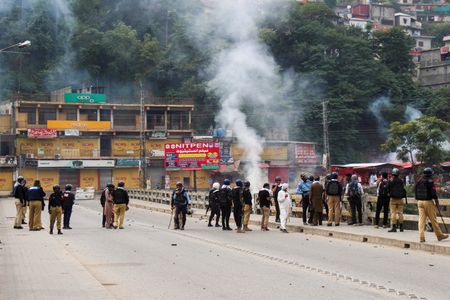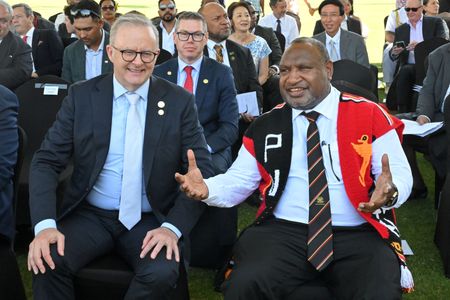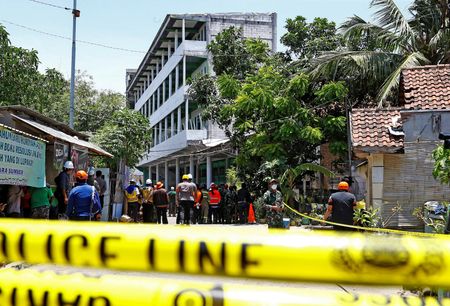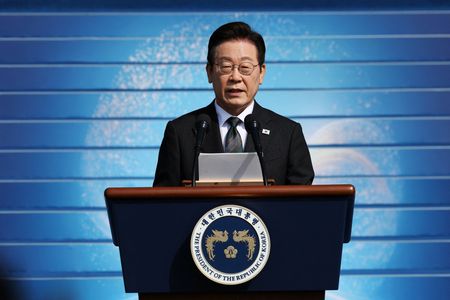By Ju-min Park and Joyce Lee
SEOUL (Reuters) -South Korea has delivered its proposals on a trade deal to the U.S., including its request for a currency swap line, and is waiting for a response, a presidential adviser said on Thursday, as he reaffirmed the government’s will to finalise a deal this month.
Washington had previously agreed to lower tariffs on imports from South Korea in return for a $350 billion investment package but follow-up negotiations to hammer out details, including the structure of the investment package, have stalled.
“We have sent our stance to the U.S. and there has not been any response yet from Commerce Secretary Lutnick, our main counterpart,” Presidential Policy Adviser Kim Yong-beom said at a meeting with foreign media.
Kim said South Korea made a request for a bilateral currency swap programme in the proposal sent to the U.S., which Seoul wants in place to mitigate the foreign exchange impact of a $350 billion investment package, part of a preliminary deal reached in July.
“We really want to do this but to do it, it needs to be operational,” Kim said, adding that the deal needed to be logically acceptable to be approved by parliament.
Kim also said an Asia-Pacific summit due to be held in Gyeongju in South Korea in late October would be an opportunity “we shouldn’t miss”.
SECURITY PACT PROGRESS OUTPACES TRADE DEAL
South Korea’s foreign minister said in an interview with the Yonhap News Agency earlier in the day that Seoul was seeking to announce a security agreement with the U.S. before the summit, which South Korean officials expect U.S. President Donald Trump to attend.
Foreign Minister Cho Hyun said in the interview that South Korea and the U.S. had reached a rough agreement on security in tandem with the ongoing tariff negotiations but Seoul may need more time to strike a trade deal than Japan did. Tokyo signed on to the details of its investment package with the U.S. last month.
Cho also said the U.S. was reviewing a currency swap deal, which was a key demand from South Korea in tariff talks, but he signalled he was not optimistic.
Meanwhile, Seoul and Washington have also been looking at a deal in security areas such as an increase in South Korean defence spending, which is part of the broader package aimed at pushing down U.S. tariffs.
Trump has said South Korea should be paying for its own military protection and suggested it needed to pay more for the U.S. troop presence there.
South Korean President Lee Jae Myung said on Wednesday the country would boost next year’s defence budget by 8.2%, highlighting the importance of stronger self-defence.
“In the security field, an agreement has already been reached in general, which allows us to increase our national defence capabilities in necessary areas,” Cho told Yonhap.
INDUSTRIAL NUCLEAR FUEL ACCESS UNDER REVIEW
Working towards the security deal, top South Korean officials have said the two countries are making progress on giving more rights to South Korea on nuclear fuel processing for industrial purposes.
That is currently not allowed under an existing agreement between the two countries.
Cho said he did not rule out a possibility of Trump meeting with North Korean leader Kim Jong Un, as some “speculative” media reports suggested.
The South Korean president suggested the U.S. president try to meet with Kim during his trip to South Korea.
Last month, Kim said he was open to talks with the U.S. if Washington stopped insisting his country give up nuclear weapons, North Korean state media reported.
(Reporting by Ju-min Park; Editing by Jamie Freed, Chris Reese and Hugh Lawson)

